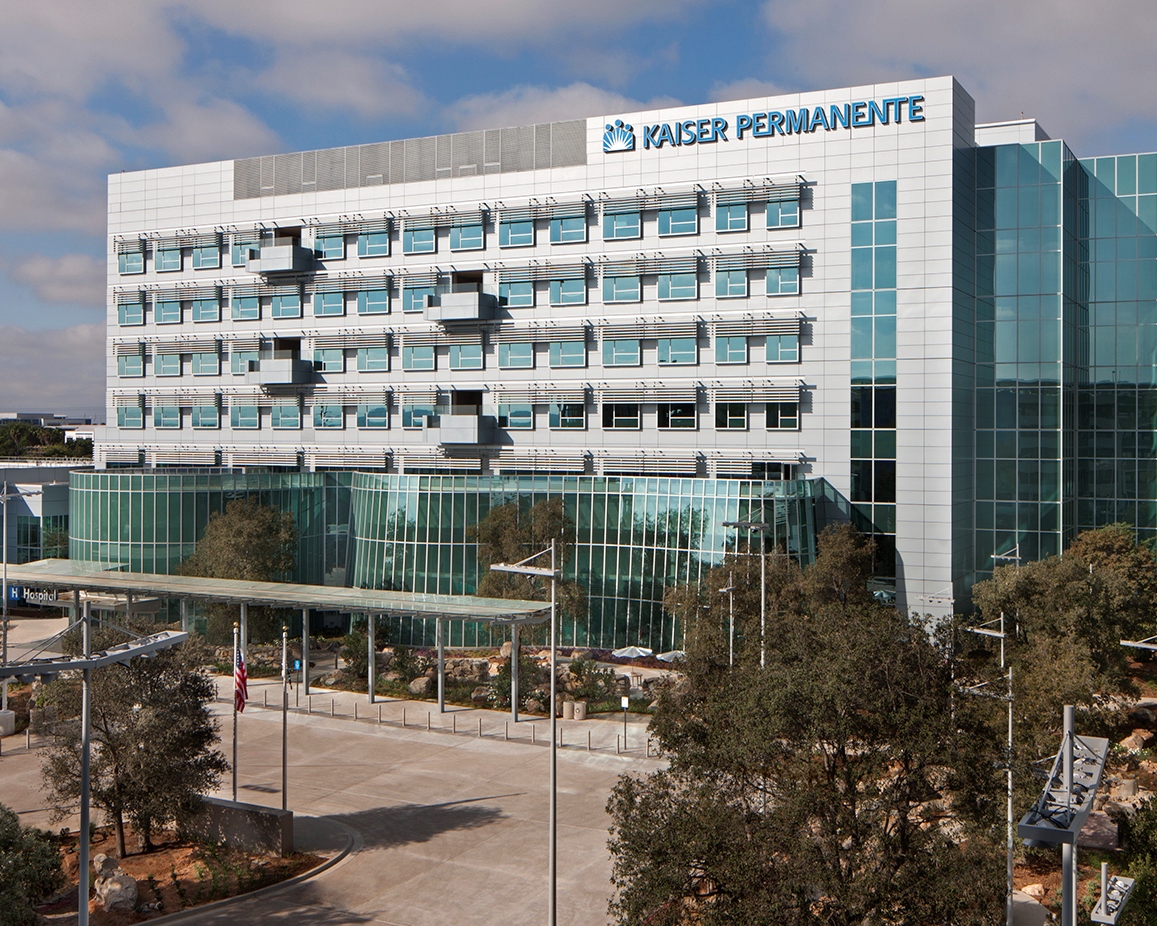Largest not-for-profit, integrated healthcare system reports more than 10 percent membership growth and consistent operating performance in 2017

CO Architects with Hensel Phelps – Kaiser Permanente San Diego – Photography by Tom Bonner – Job ID 6223
Kaiser Foundation Health Plan, Inc., Kaiser Foundation Hospitals and their respective subsidiaries (KFHP/H) across all eight regions, including the newest region, Kaiser Permanente Washington, reported their 2017 annual financial results. Total operating revenue for 2017 was $72.7 billion, compared to $64.6 billion in 2016. Operating income was $2.2 billion, equal to 3.0 percent of operating revenue, compared to $1.9 billion in 2016, equal to 3.0 percent of operating revenue. Net non-operating income was $1.6 billion in 2017, compared to $1.2 billion in 2016. Net income was $3.8 billion in 2017, compared to $3.1 billion in 2016. Capital spending was $3.3 billion in 2017, compared to $2.8 billion in 2016.
Membership for 2017 grew by approximately 1.1 million, including more than 650,000 members from the Group Health Cooperative acquisition in February 2017. As a result, membership increased by 10.1 percent from 2016, for a total of 11.8 million members as of Dec. 31, 2017.
As an integrated, not-for-profit healthcare organization that offers both coverages and delivers care to members, KFHP/H’s $3.3 billion in capital spending for 2017 reflects an ongoing commitment to invest in facilities and technology that support excellent medical care, including the additional capacity for new members.
In 2017, Kaiser Permanente opened the new San Diego Medical Center, which is its 39th hospital and the first to earn a Leadership in Energy and Environmental Design (or LEED) Platinum rating for health care certification, the highest certification level. Another 15 new medical office buildings also opened in 2017, including two that received LEED Gold-certified status. More than 25 new medical office buildings are scheduled to open in the next 12 to 14 months. As of Dec. 31, 2017, the total number of medical office buildings in the Kaiser Permanente system is 682, in addition to 39 hospitals.
Kaiser Permanente’s continued investment in state-of-the-art technology supports the needs of members and allows for easy and convenient access to care and service via secure messaging, telehealth, worksite clinics and mobile health vehicles, including access to personal medical information and communication with caregivers. Kaiser Permanente’s website, kp.org, was accessed an average of 800,000 times per day during 2017, an increase of 18 percent over the prior year. Close to 25.5 million prescriptions were also filled via digital channels and more than 48.7 million lab results were viewed online in 2017, an increase from 2016 of nearly 16.9 percent and 7.2 percent, respectively.
“Our 2017 performance is in line with expectations,” said Executive Vice President and CFO Kathy Lancaster. “Kaiser Permanente’s financial stability allows us to remain a trusted partner in total health and continue to provide high-quality, affordable health care. We demonstrate our unwavering commitment to our members and the communities we serve by maintaining our strategic investments in technology, facilities and environmental sustainability initiatives.”
KFHP/H supports a wide range of community-based health activities, partnerships and investments that improve community health, provide care and coverage to low-income individuals, train health professionals and support medical research. In 2017, approximately $2.8 billion was provided to support these community health investment programs, representing 3.9 percent of operating revenue. In comparison, for the year ending Dec. 31, 2016, KFHP/H’s community-based support was approximately $2.5 billion, representing 3.9 percent of operating revenue.
Except for historical information contained herein, the matters discussed in this media release are forward-looking statements that involve risks and uncertainties. Actual results may differ materially based on a number of factors including, but not limited to, the impact of competitive products and pricing, government regulations, changing membership requirements, and the change in business and economic conditions. Forward-looking statements are based on information as of the date of this media release, and we assume no obligation to update or revise any of these forward-looking statements, whether as a result of new information, future events or otherwise.
About Kaiser Permanente
Kaiser Permanente is committed to helping shape the future of healthcare. We are recognized as one of America’s leading health care providers and not-for-profit health plans. Founded in 1945, Kaiser Permanente has a mission to provide high-quality, affordable health care services and to improve the health of our members and the communities we serve. As of Dec. 31, 2017, we served 11.8 million members in eight states and the District of Columbia, and added more than 650,000 members on Feb. 1, 2017, with the acquisition of Seattle’s Group Health Cooperative. Care for members and patients is focused on their total health and guided by their personal physicians, specialists and team of caregivers. Our expert and caring medical teams are empowered and supported by industry-leading technology advances and tools for health promotion, disease prevention, state-of-the-art care delivery and world-class chronic disease management. Kaiser Permanente is dedicated to care innovations, clinical research, health education and the support of community health. For more information, go to: kp.org/share.
Contact:
Carmella Gutierrez
Carmella.M.Gutierrez@kp.org
The full content of this article is only available to paid subscribers. If you are an active subscriber, please log in. To subscribe, please click here: SUBSCRIBE






